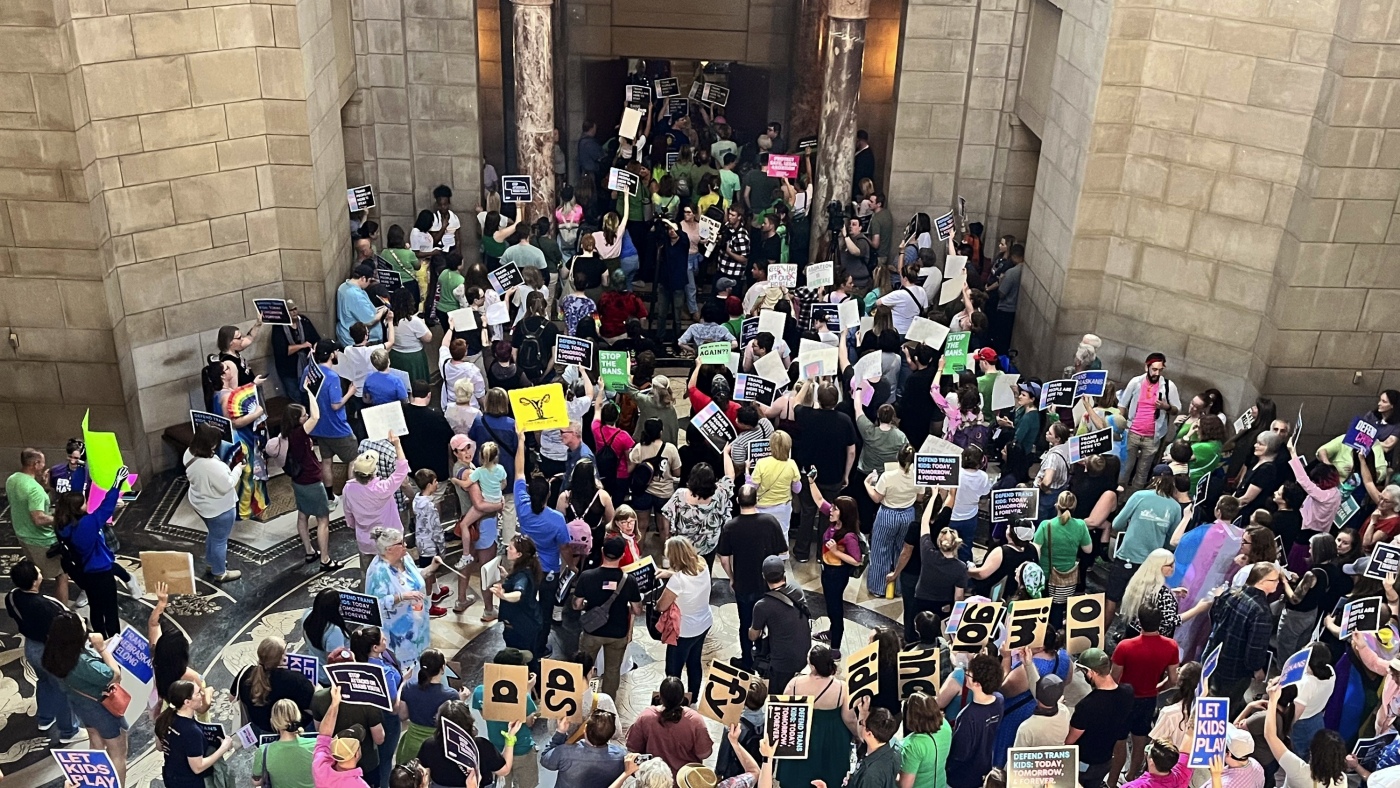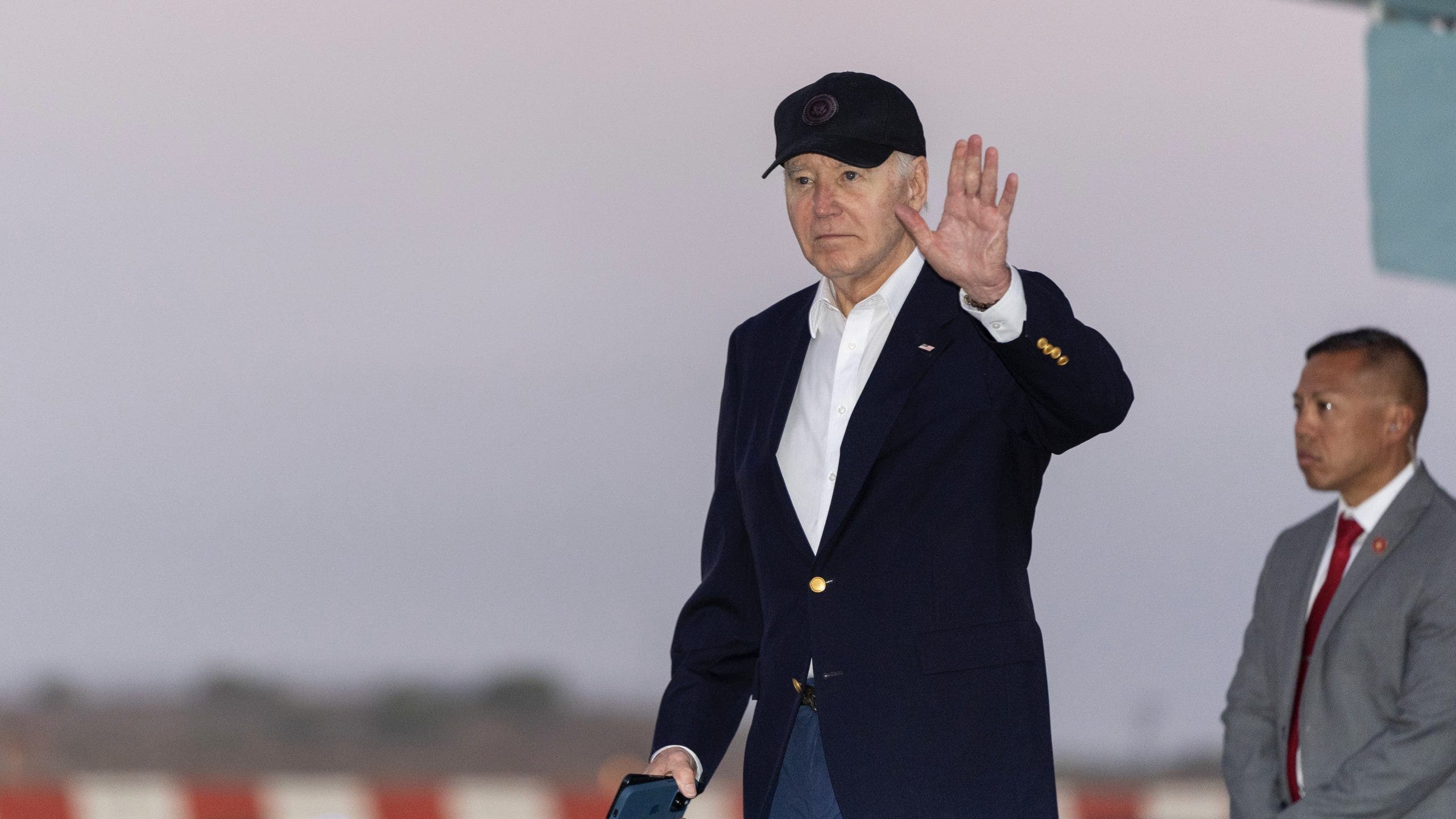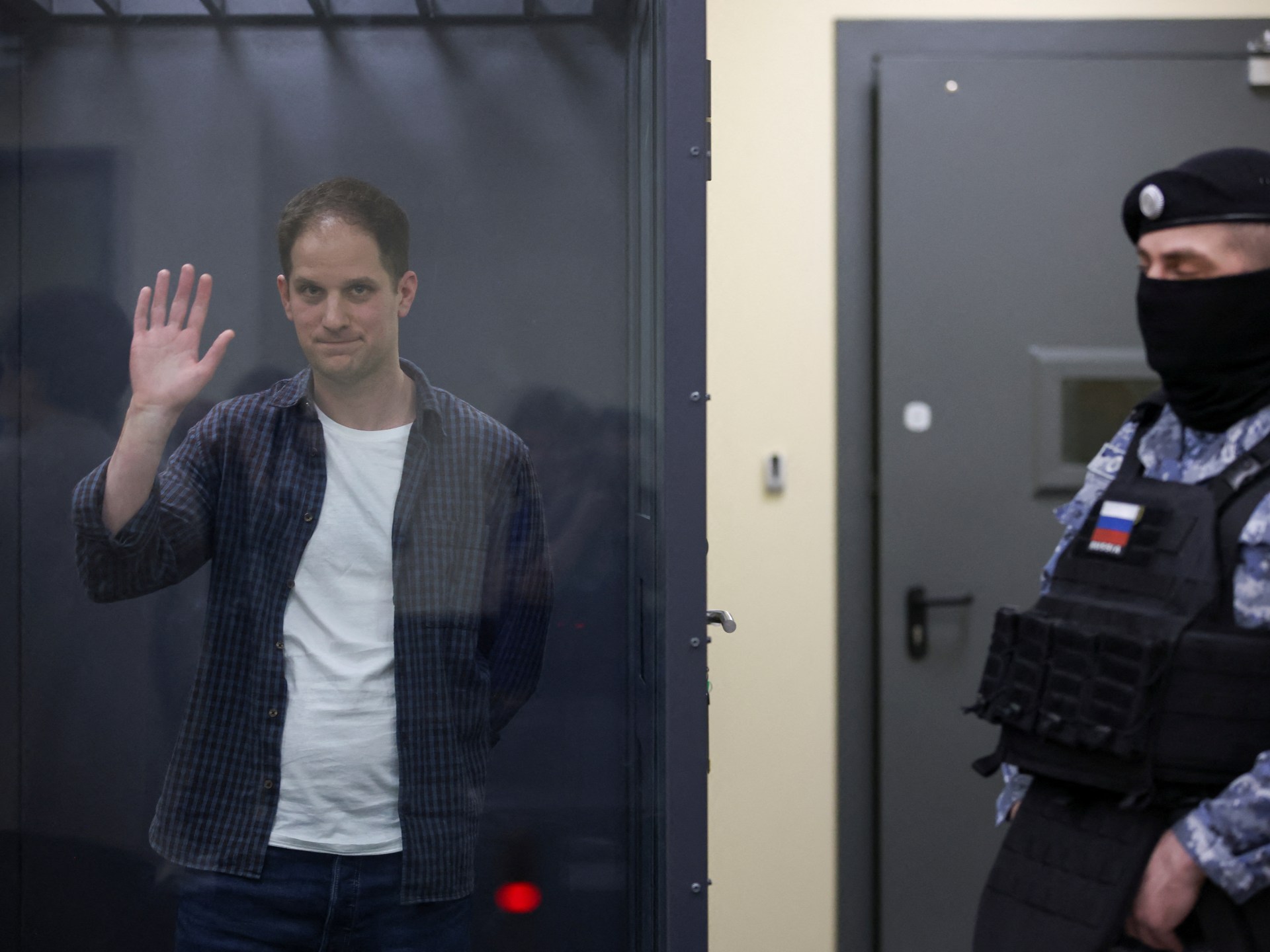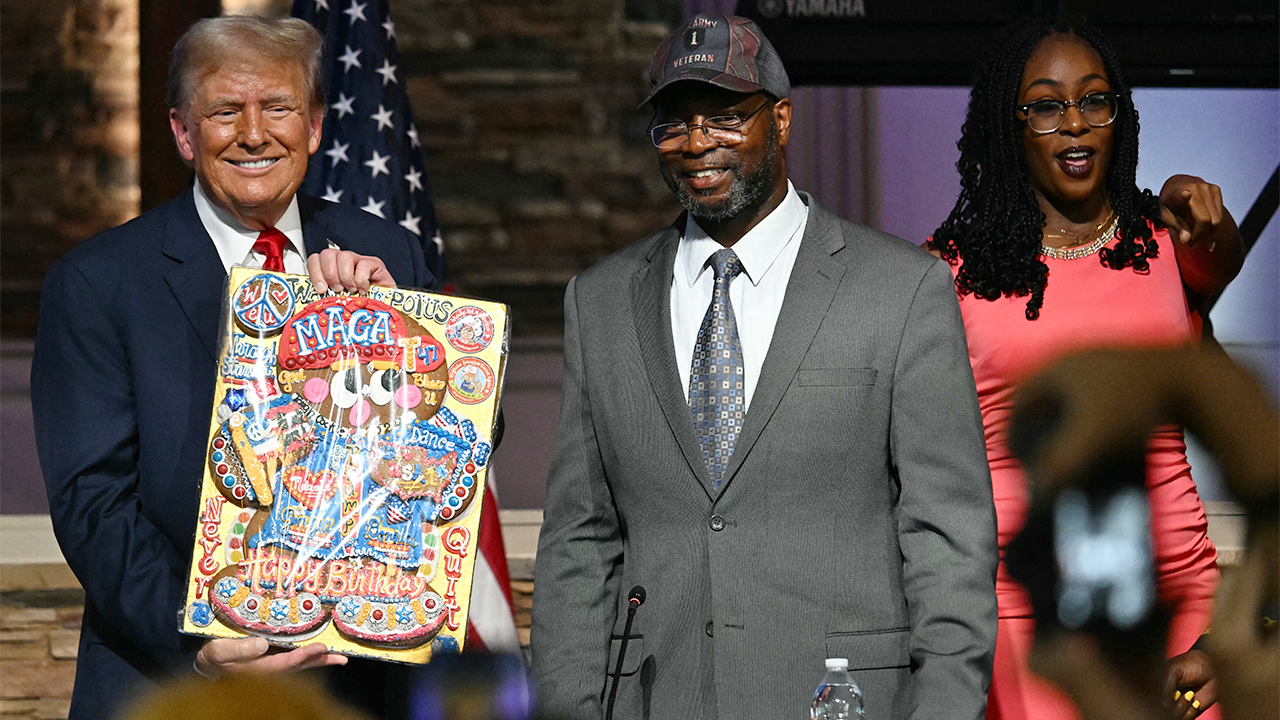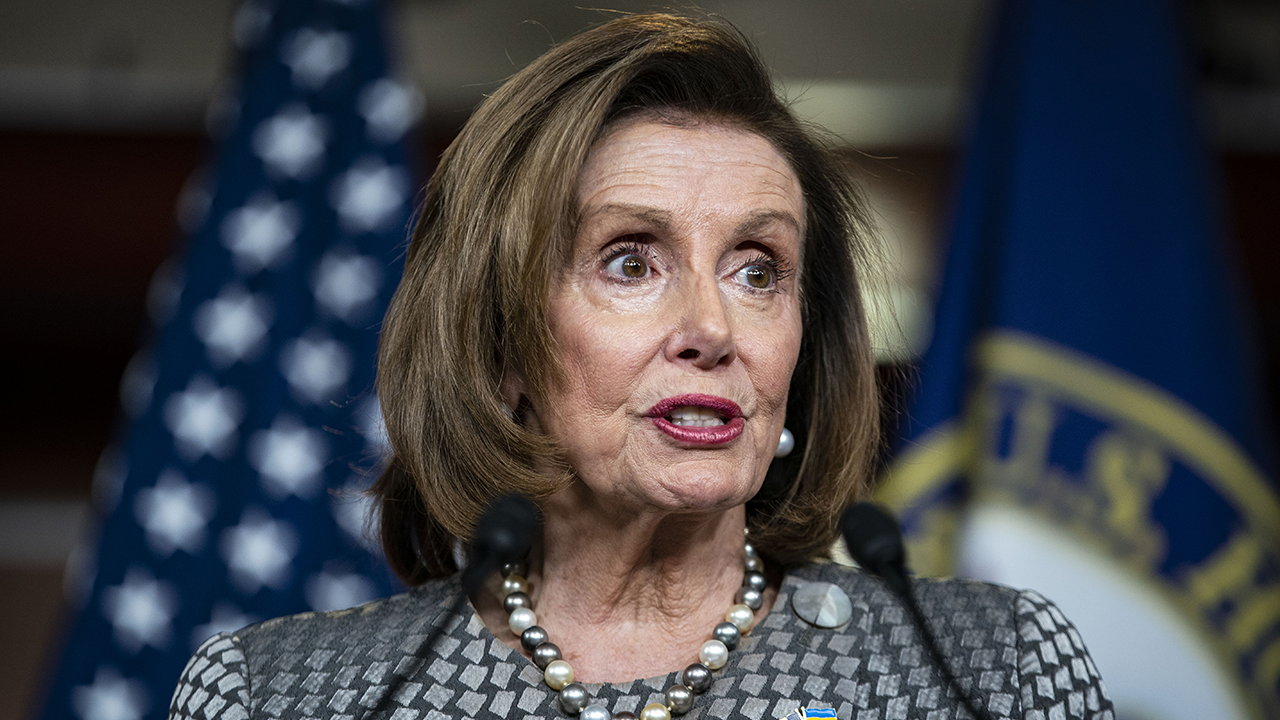Demonstrators came to the Nebraska Capitol in Lincoln last year to protest plans to revive an abortion ban last year. They were prompted by the sentencing of an 18-year-old woman to 90 days in jail for burning and burying a fetus after she took medication given to her by her mother to end her pregnancy.
Margery Beck/AP
hide caption
toggle caption
Margery Beck/AP
OMAHA, Nebraska — At a farmers’ market in midtown Omaha, abortion politics are playing out near the produce stands, flower vendors and a brass band.
Petitioners for two opposing ballot measures have set up folding tables near each other, competing for signatures from registered voters. One initiative would put an amendment in the state’s constitution allowing abortion until fetal viability – usually about 24 weeks. That would replace the current ban on most abortions after 12 weeks of pregnancy currently in state law.
Samantha Weatherington stopped to sign the fetal viability proposal. To her, the state’s current ban is too restrictive.
“It’s terrifying to think that we can’t even make choices of our own bodies again, it’s like going back to the ‘40s and ’50s,” she said. “I don’t want to see people’s daughters using a coat hanger as a last resort.”
Less than 20 feet away is another table where petitioners solicit signatures for a different ballot question. This would ask voters to put the current 12-week ban into the constitution.
Andrew Shradar planned to sign that petition.
“I believe that it’s a human being at conception,” he said. “Protecting the unborn is what needs to be done no matter what, and for the two petitions that are being held right now, that’s the one I’m going to sign.”
At a farmers’ market in midtown Omaha, Richard Riscol solicits signatures for a petition to put a constitutional amendment on the ballot that would limit abortion at 12 weeks of pregnancy.
Elizabeth Rembert/Nebraska Public Media
hide caption
toggle caption
Elizabeth Rembert/Nebraska Public Media
Since The Supreme Court overturned the federal right to abortion in 2022, the issue has been fought out state by state. It is already on the ballot in Colorado, Florida, Maryland and South Dakota and there are efforts underway in six more states.
The opposing groups have to get on the ballot and then compete
In several, like Arizona and Missouri, abortion rights supporters are going to the voters to get around Republican-led legislatures that have passed laws restricting abortion.
That’s the case in Nebraska too, but with the added twist of the competing campaigns. Four months after the abortion rights groups got going on the fetal viability proposal, activists opposing abortion started the drive for the 12-week ban.
To get on the ballot, the campaigns have until July 3 to collect signatures from 10% of the state’s registered voters – about 123,000 people. That has to include signatures from 5% of voters in at least 38 of Nebraska’s 93 counties. To pass, the ballot proposals require majority approval, with votes from at least 35% of those casting ballots in the November election.
There’s a chance they could both get on the ballot. “This is where the conflict arises,” said Sec. of State Bob Evnen in an interview. “You have two conflicting initiatives proposing an amendment to the Nebraska constitution. That conflict has to be resolved.”
And while it’s up to the governor – after the vote – to rule officially that two amendments are in conflict, he says he thinks these do. “They are wholly in conflict with each other,” he said. “There’s nothing to reconcile.”
Evnen says that would test for the first time a law established in 1912 that says that if they both pass, then whichever proposal gets more approving votes will be adopted in the state’s constitution.
“It’s possible that one of the proposals could get approved and not be adopted,” Evnen said. “It’ll come down to, whichever one receives the most votes is the one that would go into Nebraska’s constitution.”
Voter education will be key
That could all lead to confusing choices for Nebraska voters. Rachel Rebouché, a reproductive and family law expert and dean of Temple University’s law school, said that twist will make outreach even more important for each campaign.
“Having to choose between 12 weeks and fetal viability is going to slice voters up in different ways,” she said. “Each side has a stable group of supporters. But how are they going to reach people who have abortion ambivalence and convince them that their stance is the best option?”
For now, both campaigns said they’re focusing on getting their proposal onto the November ballot. Once that’s cleared, they said they’ll turn to educating and turning out voters, since a majority might not be enough to win.
“Decisions about pregnancy are personal, and they should be made between medical providers and the patient,” said Allie Berry, campaign manager for Protect Our Rights, which backs the fetal viability amendment. “A lot of people agree with that and are excited to sign.”
Brenna Grasz, treasurer for Protect Women & Children, is confident in the 12-week ban petition drive. “We believe that Nebraska voters are majority pro-life, and the vote in November will reflect that.”
One of her allies, Nebraska Right to Life President Sandy Danek, says she supports the 12-week amendment in part because it will allow for tighter abortion limits in law later. “It does give us an ability to go back to the Nebraska legislature and seek further protections,” she said. “I can’t tell you when the body will be in a place to do that, but this initiative does give us that liberty.”
Elizabeth Rembert reports for Nebraska Public Media.

